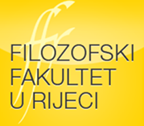Ethical guidelines for publishing in Psychological Topics
EDITORS
The Editor-in-Chief as well as all members of the Editorial Board of Psychological Topics, both domestic and foreign, should conduct their assignments honestly and professionally. The journal seeks to publish original and scientifically valuable papers that significantly contribute to the scientific community while retaining the highest standards of ethical behavior. Similar standards are also expected from our reviewers and authors.
To achieve this goal, we expect from everyone involved in the process of publishing to adhere to the highest ethical standards. We expect originality and an honest approach from the authors, and objectivity and confidentiality of submitted manuscripts from editors and reviewers.
The editor should actively seek the opinions of authors, readers, reviewers, and other members of the editorial board on improving the journal. It is the editor's duty to support initiatives which will minimize violations of academic rules and to familiarize the researchers with the regulations on publishing ethics. The journal's policy should be revised as necessary, considering new professional and scientific insights on editing and publishing, as well as effects of journal policies on authors’ and reviewers’ behaviors.
The editor evaluates manuscripts according to their intellectual content, regardless of the race, gender, sexual orientation, religious beliefs, nationality, or political beliefs of the author(s). When an editor, a member of the editorial board or an employee of the Faculty of Humanities and Social Sciences in Rijeka is an author, it is necessary to ensure an independent and objective review of their paper to avoid any potential conflicts of interest.
It is the Editor-in-Chief’s duty to examine all complaints relating to a violation of ethical standards and take appropriate measures to rectify any errors and omissions. These measures primarily involve communication with the author(s) of the disputed paper, but may also involve forwarding the complaints to appropriate academic or research institutions. If the complaints refer to an unpublished manuscript, its publication may be suspended until the complaint is resolved.
If major errors or inaccurate data are found in the manuscript or published work, the Editor-in-Chief will correct the mistakes in co-operation with the authors, i.e., will arrange for and publish an appropriate correction. In the event of a serious mistake or misconduct, the Editor-in-Chief may, in line with the COPE Guidelines, decide to withdraw the disputed paper from the journal and issue a retraction notice.
Editor-in-Chief is responsible for all the papers published in the journal. Their main duties are as follows:
- to recognize the needs of both authors and readers and to take appropriate steps towards their realization,
- to establish appropriate mechanisms to ensure the quality of published papers,
- to promote academic integrity through their example and work,
- to support initiatives to reduce academic misconduct,
- to inform researchers and potential authors about publishing ethics,
- to make corrections, clarifications, withdrawal of the paper or apologies if necessary,
- to actively work on improving the journal.
Editor and Editorial Board members:
- assume responsibility for the papers published in Psychological Topics,
- should make fair and impartial decisions and ensure an impartial review process,
- may discuss the manuscript only with the authors, reviewers, other editorial board members and the publisher's representative, if necessary and in an appropriate manner,
- should adopt publication policies that support maximum transparency,
- respond to any unethical procedure of reviewers or other members of the editorial board,
- are required to provide clear explanations of the expectations of the authors and reviewers during the publishing process,
- may not use unpublished materials from the submitted manuscripts in their own research, except with the express written permission of the author,
- keep confidential the data and ideas they have come across during the publishing process and not use them for their own benefit,
- should withdraw from editing or reviewing those manuscripts where there is any form of conflict of interest which may arise from a competitive, cooperative or another type of relationship with some of the authors or institutions associated with the manuscript,
- in case of an editorial conflict of interest, the COPE guidelines should be adhered to,
- should take all steps to ensure high quality of the published works.
International members of the Editorial Board contribute to the development of the journal by:
- acting as ambassadors of the journal,
- supporting and promoting the journal,
- participating in the review procedure if necessary,
- actively seeking and encouraging authors to submit high quality articles to the journal,
- writing editorials or comments on topics in their area of interest, if necessary,
- supporting and promoting the journal’s policies.
REVIEWERS
The review process ensures quality control of published papers and plays a key role in ensuring the relevance and scientific contribution of the published research. Reviewers are expected to:
- assist editors in making publishing decisions and assist authors in improving their work,
- notify the editor if they are unable to make a review within the expected time,
- notify the editor if they consider that they are not qualified to review the research described in the manuscript,
- treat the manuscript as a confidential document,
- review papers objectively and argumentatively, in line with the Guidelines for Psychological Topic Reviewers,
- recognize and alert the author if the relevant sources are not referenced in the paper,
- inform the editors about any possible overlap of a manuscript and an already published paper,
- not use the information from the manuscripts for their own research, except with the express written permission of the author,
- maintain confidentiality of the information and ideas presented in the manuscripts,
- not accept reviews of those manuscripts where there is a potential conflict of interest.
It is recommended that reviewers follow and respect the COPE Ethical Guidelines for Peer Reviewers (https://publicationethics.org/guidance/guideline/ethical-guidelines-peer-reviewers) in their work.
AUTHORS
The authors are obliged to present their research papers accurately and objectively, with a special reference to the relevance of the research carried out and the conclusions drawn. The paper should include sufficient details and sources of literature to be replicated.
Authors are expected to:
- allow access to the data collected at the request of the editor and to keep the research data in accordance with the applicable regulations of the Code of Ethics of the Croatian Psychological Chamber (https://psiholoska-komora.hr/dokumenti/Kodeks_etike_psiholoske_djelatnosti_nn_13_2005.pdf-45f091d9b9dcdb6dcab8c81dd53a936a.pdf) and the Ethics Code of The American Psychological Association (APA) (http://www.apa.org/ethics/code/). At the same time, we strongly encourage authors to make their data and code openly available,
- ensure the originality and genuineness of their scientific work,
- not plagiarize in any form whatsoever, including, for example, displaying others’ papers as their own, replicating or paraphrasing important parts of others’ papers (without mention of the original authors) and self-plagiarism,
- not to submit the same manuscript to more than one journal (simultaneously submitting the same manuscript to multiple journals is considered unethical behavior),
- clearly and correctly describe the work of other authors in their manuscript and cite those sources which had a significant impact on the content of their research,
- limit authorship and co-authorship only to those persons who have significantly contributed to the paper: its concept, design, execution, or interpretation of the research,
- clearly indicate any potential financial or other possibly important conflict of interest that could affect the results or their interpretation,
- notify the editor or publisher if they discover a significant inaccuracy or mistake in their published paper and collaborate with the editor in order to rectify that error,
- accept the terms of open access publishing in the journal by signing Copyright Agreement. The article will be published under open access conditions in accordance with the Creative Commons CC-BY-SA license. Authors retain the copyright over their own work.
- use the official PDF of the article published in the journal and the link to the journal's pages, whenever possible, to distribute their own work.
Research involving human participants
- Research involving human subjects needs to adhere to the principles expressed in the Declaration of Helsinki (https://www.wma.net/policies-post/wma-declaration-of-helsinki-ethical-principles-for-medical-research-involving-human-subjects).The submitted manuscript must identify the committee approving the research, as well as any and all related project/license numbers. Authors need to confirm that informed consent was obtained from all participants or their representatives. In cases where no informed consent was obtained, authors need to clearly explain the reasons.
Research involving animal participants
- All animal research needs to adhere to all relevant international guidelines and regulations, as well as the legal and institutional requirements of the country and institution in which the work was carried out. The submitted manuscript must identify the institutional and/or licensing committee(s) approving the research involving animal participants, as well as any and all licenses/approval numbers.
- Authors are expected to comply with the 'Animal Research: Reporting In Vivo Experiments' (ARRIVE, https://arriveguidelines.org/) guidelines in the appropriate parts of the manuscript, as outlined in the ARRIVE guidelines. Submissions need to include details of all animals used, including information about welfare standards in the Methods section.
Guidelines on the responsible use of generative artificial intelligence in research (for authors and reviewers)
For the responsible use of generative artificial intelligence (AI), researchers should:
1. Retain ultimate responsibility for scientific outcomes.
- Researchers are responsible for the integrity of content generated or supported by AI tools.
- Researchers should maintain a critical approach to the use of results generated by generative AI and be aware of the limitations of these tools, such as bias, "hallucinations," and inaccuracies.
- AI systems are neither authors nor co-authors. Authorship implies responsibility, and therefore, it belongs solely to the researchers. AI cannot be listed as an author.
- Researchers must not use generative AI-generated materials in the scientific process for falsifying, modifying, or manipulating original research data.
2. Use generative AI transparently.
- Researchers should explicitly state at the end of the manuscript which generative AI tools were used in their research and writing. The information should include the tool's name, version, date, etc., as well as how it was used and its impact on the research process. An example statement is provided at the end of these guidelines.
- Researchers must consider the stochastic nature of generative AI tools, i.e., their tendency to generate different outputs based on the same input. The research objective must ensure replicability and robustness of results and conclusions.
3. Pay special attention to privacy, confidentiality, and intellectual property rights when sharing sensitive or protected information through AI tools.
- Researchers acknowledge that generated or submitted input (text, data, queries, images, etc.) may be used for other purposes, such as AI model training. Therefore, they protect unpublished or sensitive work (e.g., their own or others' unpublished papers) by ensuring it is not uploaded to an online AI system unless there are guarantees that the data will not be used by AI (e.g., for training future language models or for data reuse in an unverifiable manner).
- Researchers must not share third-party personal data with generative AI systems unless they have obtained explicit consent and there is a clear purpose for its use.
- Researchers understand the technical and ethical implications related to privacy, confidentiality, and intellectual property.
4. Comply with applicable national, EU, and international laws regarding the protection of intellectual property rights and personal data.
- Researchers are aware of the potential for plagiarism (of text, code, images, etc.) when using generative AI outputs. They respect the authorship of others and cite their work where appropriate. Generative AI outputs may be based on others’ work, and in such cases, proper acknowledgment and citation are necessary.
- Generative AI-produced content may contain personal data. If identified, researchers are responsible for handling personal data appropriately and in compliance with data protection regulations.
5. Continuously learn how to properly use generative AI tools to maximize benefits.
- Researchers follow best practices and guidelines for AI usage and share them with colleagues and other stakeholders.
6. Refrain from using generative AI tools in sensitive activities that could affect other researchers or organizations (e.g., peer review).
- Avoiding generative AI tools helps mitigate potential risks of unfair treatment or assessments that may arise from the limitations of these tools (such as "hallucinations" and biases). This ensures that researchers protect original unpublished works of their peers from potential exposure or inclusion in AI models.
Statement on the Use of Generative Artificial Intelligence and AI-Assisted Technology
During the preparation of this paper, the author(s) used [NAME OF TOOL/SERVICE] for [PURPOSE]. After using this tool/service, the author(s) reviewed the work and take full responsibility for its content.
For more elaborate guidelines please consult
ADDITIONAL SOURCES ON PUBLISHING ETHICS:
Ministry of Science, Education and Youth:
COPE - Committee on Publication Ethics
COPE Ethical Guidelines for Peer Reviewers
https://publicationethics.org/guidance/guideline/ethical-guidelines-peer-reviewers
International standards for editors and authors
- Kleinert, S. & Wager, E. (2011). Responsible research publication: International standards for editors. A position statement developed at the 2nd World Conference on Research Integrity, Singapore, July 22-24, 2010.
https://publicationethics.org/media/621/download?attachment - Wager, E. & Kleinert, S. (2011) Responsible research publication: International standards for authors. A position statement developed at the 2nd World Conference on Research Integrity, Singapore, July 22-24, 2010.
https://publicationethics.org/media/620/download?attachment
ARRIVE Guidelines
- Percie du Sert, N., Hurst, V., Ahluwalia, A., Alam, S., Avey, M. T., Baker, M., et al. (2020). The ARRIVE guidelines 2.0: Updated guidelines for reporting animal research. PLoS Biol, 18(7), e3000410. https://doi.org/10.1371/journal.pbio.3000410
https://arriveguidelines.org/
Declaration of Helsinki












